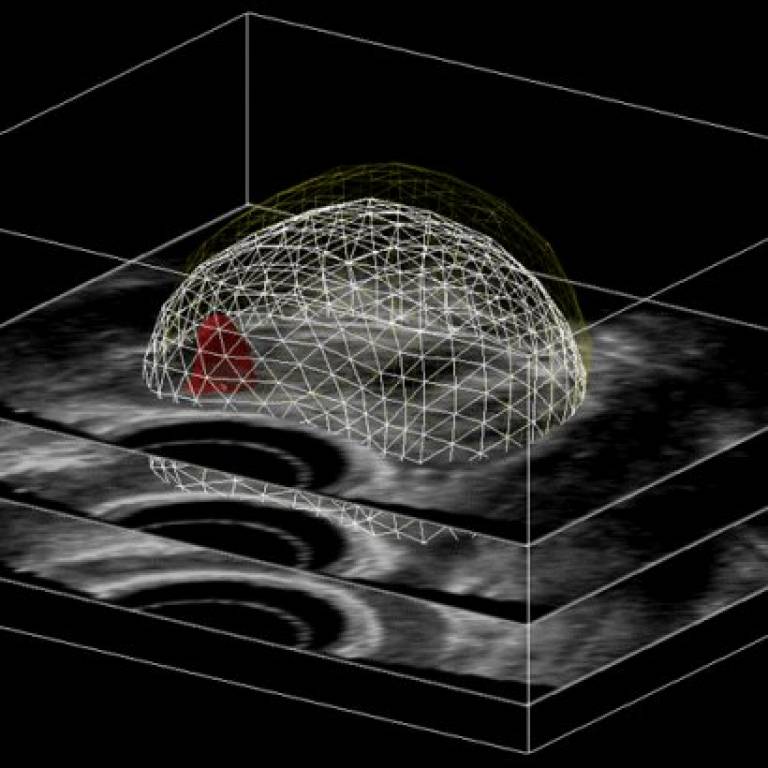More efficient prostate cancer treatment through image fusion technology
22 January 2018
UCLB spinout SmartTarget Ltd announces the launch of a new device for the detection of prostate cancer.

A new device for the detection of prostate cancer has been launched by UCLB spinout SmartTarget Ltd. Developed by biomedical engineers at the UCL Centre for Medical Image Computing (UCL CMIC), the SmartTarget® system combines MRI with ultrasound information to give more accurate diagnoses, meaning better outcomes for patients and a lower cost of treatment.
Current practice for prostate cancer takes biopsy samples from pre-determined sites in the prostate, regardless of where specifically in the gland tumours are developing. This can mean detecting benign cancers, missing malignant ones, or misclassification of either. As a result treatments are directed at the whole gland. This can damage healthy tissue as well as diseased, causing problems such as incontinence and reduced sexual function in patients.
SmartTarget® software exploits magnetic resonance imaging (MRI), which can detect clinically important cancers very accurately. Image fusion techniques developed at UCL CMIC create a “picture” by combining information from MRI with information from the ultrasound images widely used to guide the biopsy needle and treatment delivery. This gives the doctor information on cancer location, size and shape in the surgical setting, which can be used to direct and guide prostate biopsies in real-time.
The device has been developed in collaboration with urologists, and has undergone extensive clinical evaluation in over 200 patients at University College London Hospital (UCLH). Using it means less than half as many biopsy samples are taken, saving time, money and patient stress. The technology also has the potential to reduce side effects by delivering a precise and accurate treatment.
Chief Scientific Officer and co-inventor of the SmartTarget software Dr Dean Barratt (UCL Medical Physics & Biomedical Engineering) said:
“The SmartTarget software is the culmination of 10 years’ research, and incorporates some of the most advanced technology available in any commercial medical image fusion system. I am delighted that this technology is now able to become widely available to benefit patients across the UK and Europe, and look forward to continuing to develop the software for new medical applications.”
About SmartTarget Ltd.
The work forms part of the Image-guided interventions research theme at UCL CMIC, involving work from the Computer Assisted Interventions Group and the Translational Imaging Group. Other projects in this theme include the Smart Liver Surgery System, used to guide liver resection procedures, and EpiNav™, an interactive neuronavigation system for the treatment of epilepsy The UCL EPSRC Centre for Doctoral Training in Medical Imaging offers opportunities for PhD students to work on related projects.
More information can be found on the SmartTarget website . Development of the device was supported by funding from the Health Innovation Challenge Fund, a parallel funding partnership between the UK Department of Health and the Wellcome Trust, enabling the company to offer a product that is affordable for both the public and private healthcare sectors. The research was also part-funded by the National Institute for Health Research (NIHR) University College London Hospital Biomedical Research
 Close
Close

